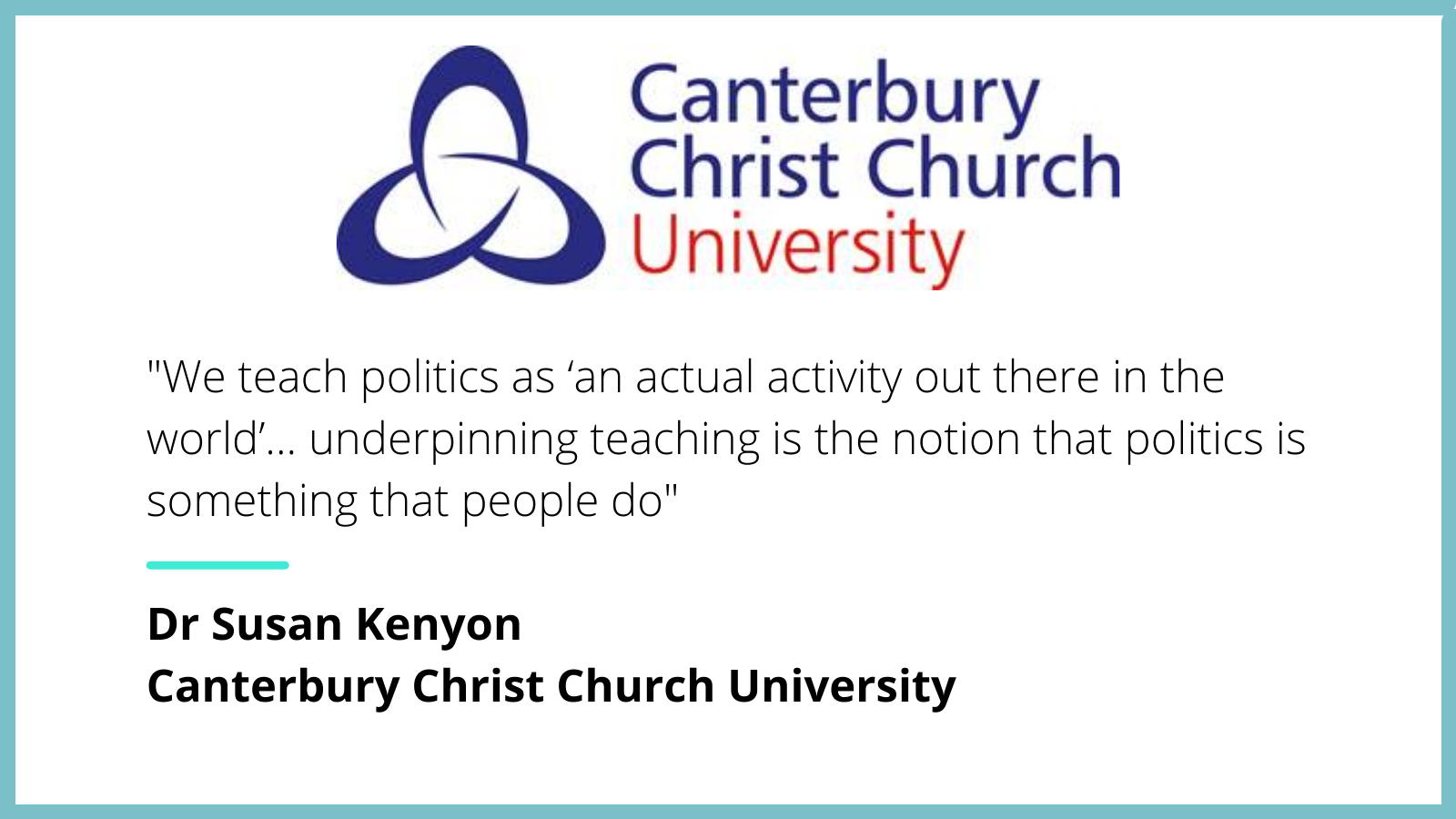Teaching students how to influence policy and engage with stakeholders at Canterbury Christ Church University
Posted 2021-10-05 10:57:32 by Dr Susan Kenyon

UPEN is doing valuable work in opening up policymaking to academics. In Politics and International Relations at Canterbury Christ Church University (CCCU), we are working to open up policymaking to students.
At CCCU, we teach politics as ‘an actual activity out there in the world’. Of course, we teach a healthy dose of political science – the behaviours, data, histories, philosophies associated with politics as an academic discipline. But underpinning teaching is the notion that politics is something that people do.
For me, ‘doing politics’ is about gaining and exercising influence. It is a process by which we seek to have an impact on others, in a wide variety of arenas, from formal institutions such as governments, businesses, schools and sports clubs to informal institutions, including family and friendship groups.
To ‘do’ politics, we need to know who or what to influence; to understand when to influence; and to be skilled in how to influence. With an eye on our students’ future employment , we are working to embed the professional skills and mindset needed to be successful in doing politics and influencing others, to increase the impact and usefulness of the knowledge that they gain during their studies.
So, what are the abilities that we want our students to graduate with if they want to influence others – and how are we supporting their development? Here are three examples.
- Communicating for influence. Let’s be honest – there isn’t a lot of demand for academic communication outside of academia! So our students are assessed using a range of written and verbal communication methods, each targeted at different stakeholders, to support students in developing influence-ready skills. For example, writing a briefing paper for an MP, delivering a verbal briefing to a business leader, re-writing a policy document for a local community, or responding to a committee enquiry.
- Stakeholders: understanding their needs. As Gloria Mensah writes in her UPEN blog, influence is dependent on framing your knowledge to answer your stakeholders’ needs. Speak in a language that appeals to their interests, writes Justin Fisher . Students learn to understand and respond to different stakeholder needs through simulations, role-playing scenarios with different stakeholder demands guiding their actions.
- Stakeholders: opportunities and processes. Links to the real world are essential, to expose students to the reality of who influences – and how. As Jenny Bird considers in her UPEN blog, and the recent UPEN survey reveals, the decision-making process can be opaque, particularly to those outside the traditional circles of power. By introducing students to influencers, through (virtual) awaydays , guest speakers at our Making Politics Matter events (including, this week, Carl Thomson from DGA Interel ), strong alumni links and industry-linked live briefs, we hope to reveal the reality of influence and impact and empower our students with the confidence to enter these arenas.
Our aims closely parallel UPEN’s: to increase the impact of academic knowledge and research on public policy; and to increase the diversity of voices contributing to policymaking. But we are focusing on achieving this by developing graduate skills – and recent league tables suggest that our students not only enjoy, but benefit from, this approach. By supporting our students to develop the skills that influencers need in the real world, we hope to contribute to progress towards more inclusive, representative and accessible political arenas, in all areas of life.
Dr Susan Kenyon is a Principal Lecturer in Politics at Canterbury Christ Church University. Dr Kenyon researches the impacts of transport on society and conducts pedagogic research. Her most recent research combines the two, examining the impact of the move to online learning during the Covid pandemic upon the attainment, engagement and wellbeing of commuter students.










































































































